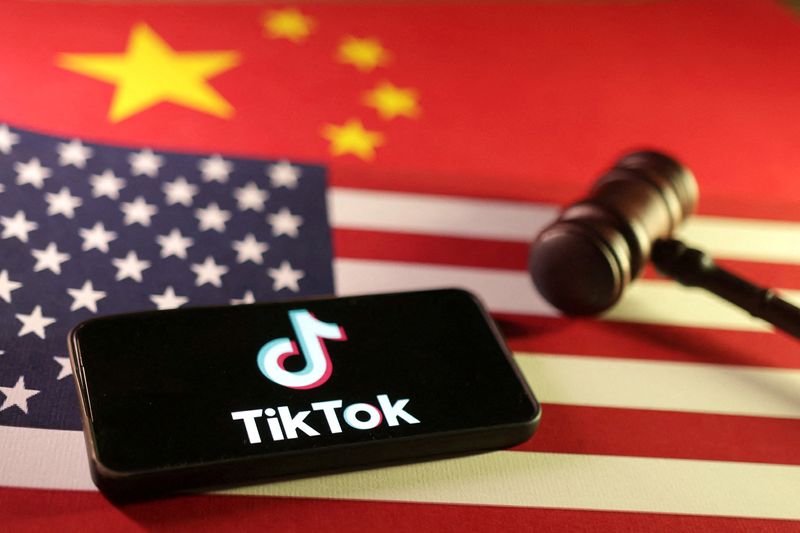By Andrew Chung, John Kruzel and David Shepardson
WASHINGTON (Reuters) - The Supreme Court began hearing arguments on Friday over the legality of a statute that would ban or force the sale of TikTok by Jan. 19 in the United States in a case that pits free speech rights against national security concerns over the widely used short-video app owned by Chinese company ByteDance.
TikTok and ByteDance, as well as some users who post content on the app, have challenged a law passed by Congress with strong bipartisan support last year and signed by outgoing Democratic President Joe Biden, whose administration is defending it in the case.
A lower court rejected the argument made by the law's challengers that it violates the U.S. Constitution's First Amendment protection against government abridgment of free speech.
The Supreme Court's consideration of the case comes at a time of rising trade tensions between the world's two biggest economies. Republican Donald Trump, due to begin his second term as president on Jan. 20, opposes the ban.
The Supreme Court was weighing competing concerns - about free speech rights and about the national security implications of a social media platform with foreign owners that collects data from a domestic user base of 170 million Americans, about half the U.S. population.
The Justice Department has said TikTok poses a grave threat to U.S. national security because of the risk that China could use this immense trove of data on Americans for espionage or blackmail, or secretly manipulate content that they view on the app to serve its interests.
The platform's powerful algorithm feeds individual users short videos tailored to their liking. TikTok has said that the ban would hit its user base, advertisers, content creators and employee talent. TikTok has 7,000 U.S. employees.
Passage of the law imperils not only the First Amendment rights of both TikTok and its users but "the entire nation," according to the challengers in the case. The platform represents "one of the most significant speech platforms in America," TikTok and ByteDance said in a filing, adding that the law is "at war with the First Amendment."
The challengers are supported by several free speech and libertarian advocacy groups. While Trump has vowed to "save" the platform, many of his Republican allies support the ban.
The Justice Department has said the law targets control of the app by a foreign adversary, not protected speech, and that TikTok could continue operating as-is if it is freed from China's control.
No one disputes that China "seeks to undermine U.S. interests by amassing sensitive data about Americans and engaging in covert and malign influence operations," the department told the court in a filing, calling the app "a powerful tool for espionage."
TikTok, ByteDance and the app users, seeking an injunction to halt the ban, are appealing the U.S. Court of Appeals for the District of Columbia Circuit's Dec. 6 ruling upholding the law.

Trump on Dec. 27 called on the Supreme Court to put a hold on the Jan. 19 deadline for divestment to give the incoming administration "the opportunity to pursue a political resolution of the questions at issue in the case." The Justice Department urged the court to reject that request.
The Supreme Court has a 6-3 conservative majority including three justices appointed by Trump during his first term as president.